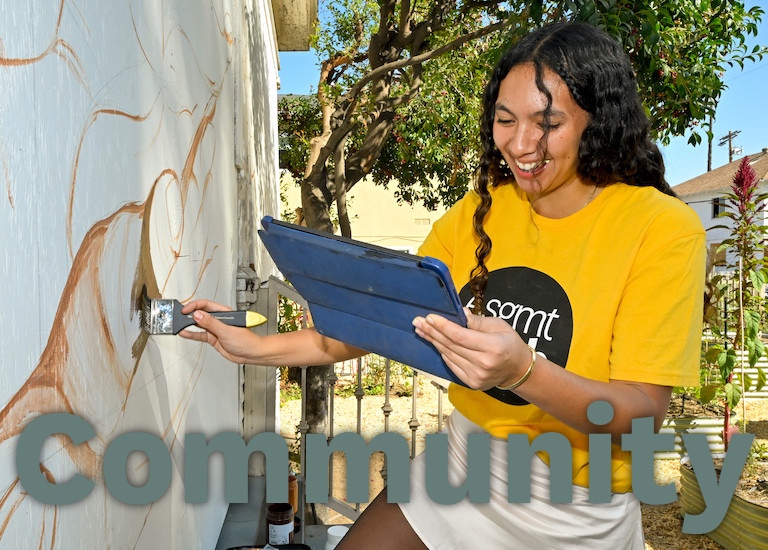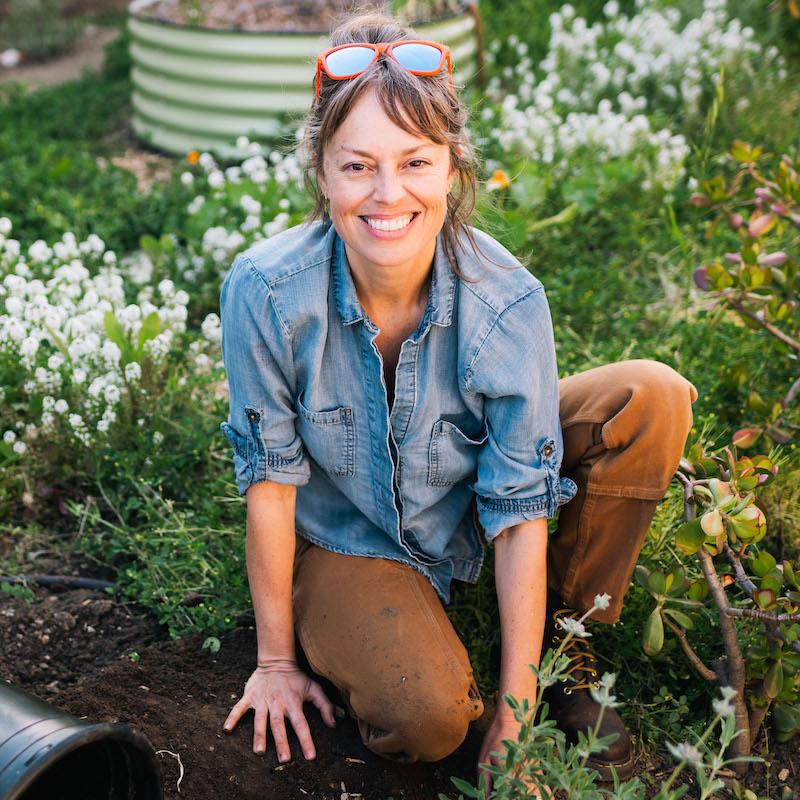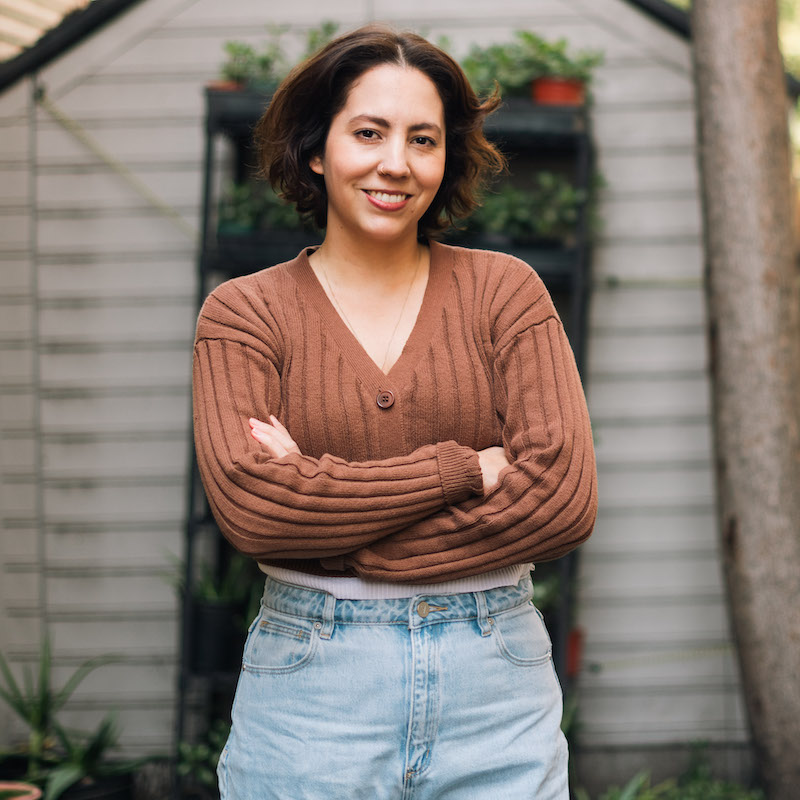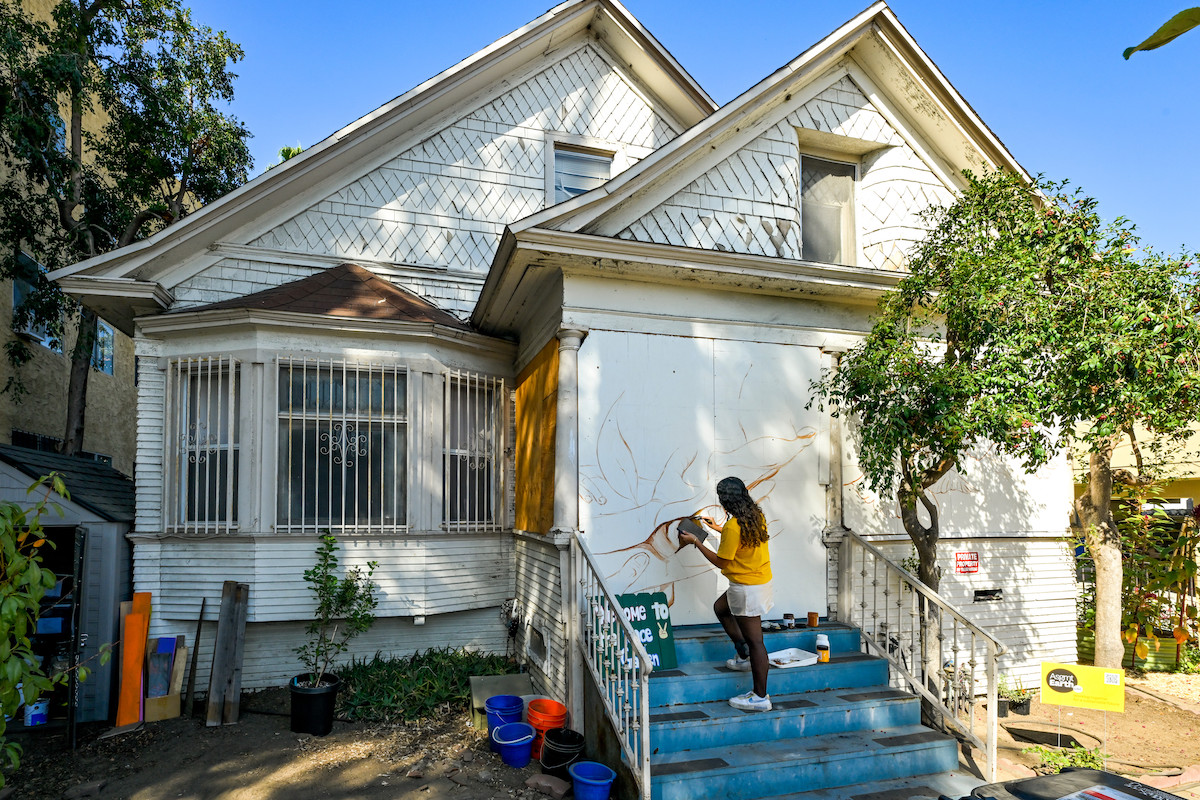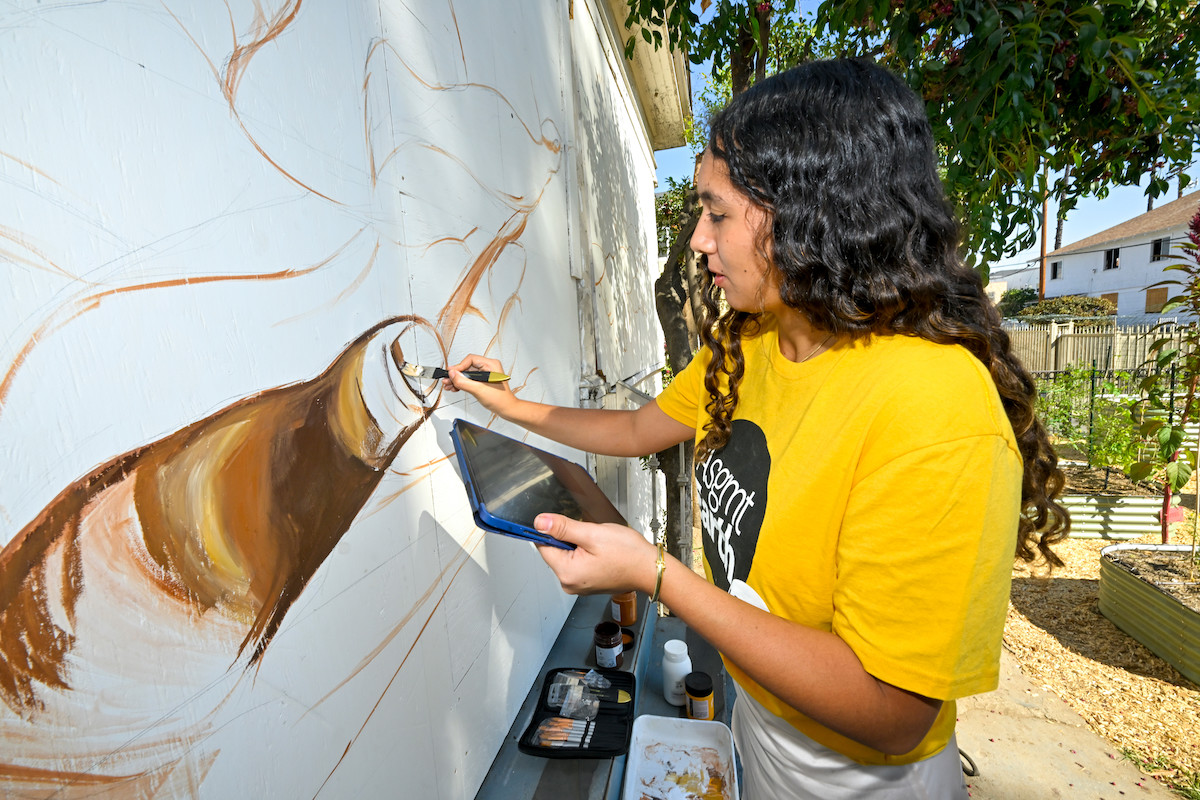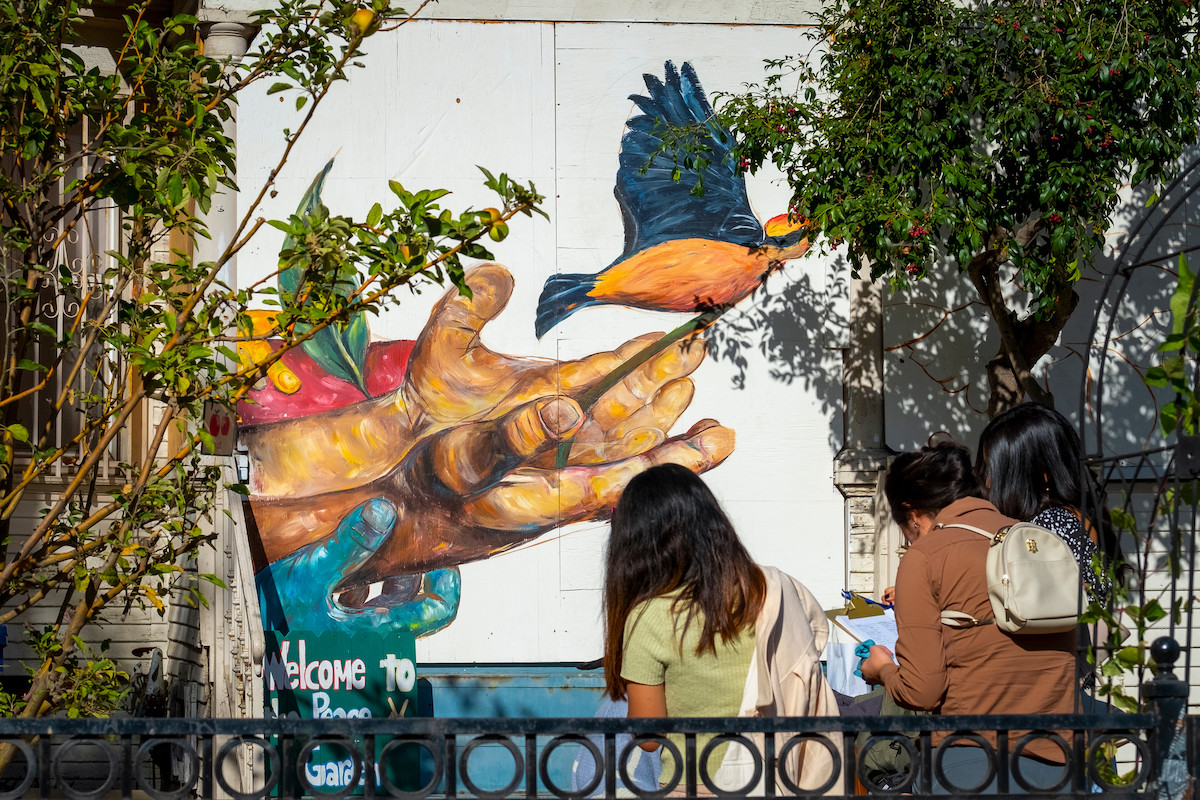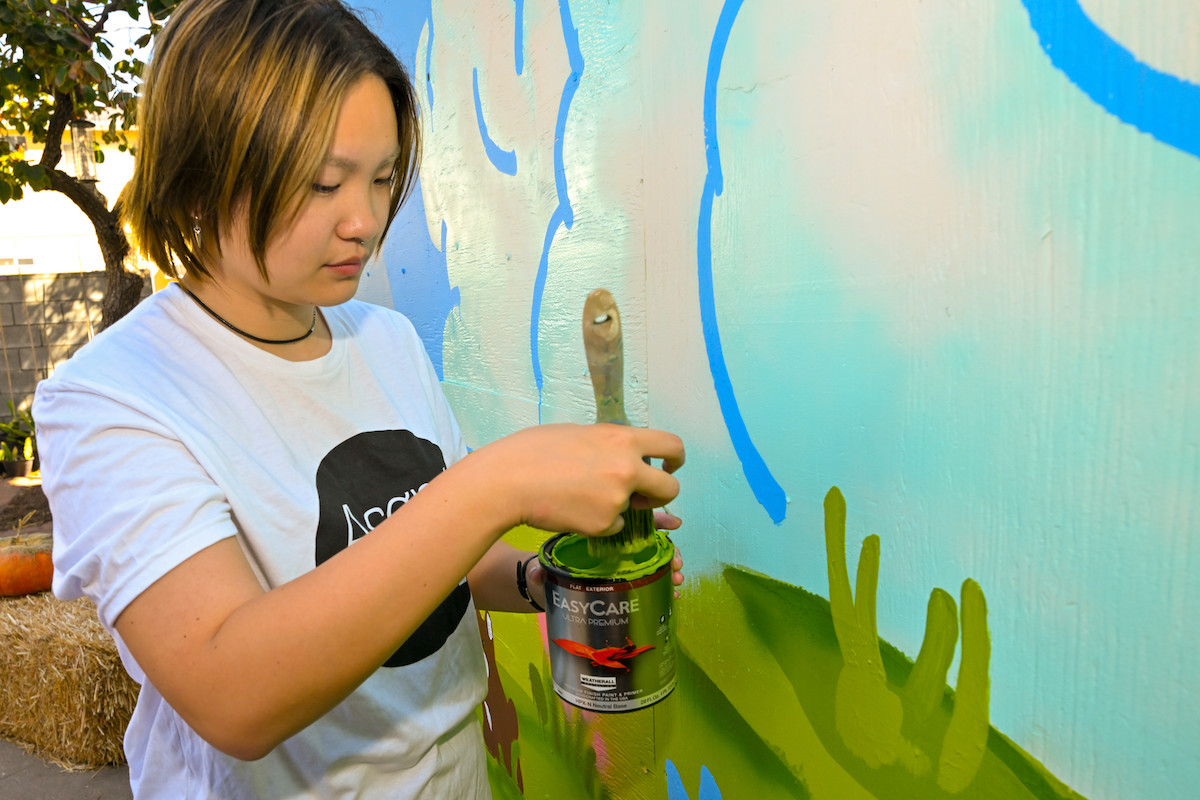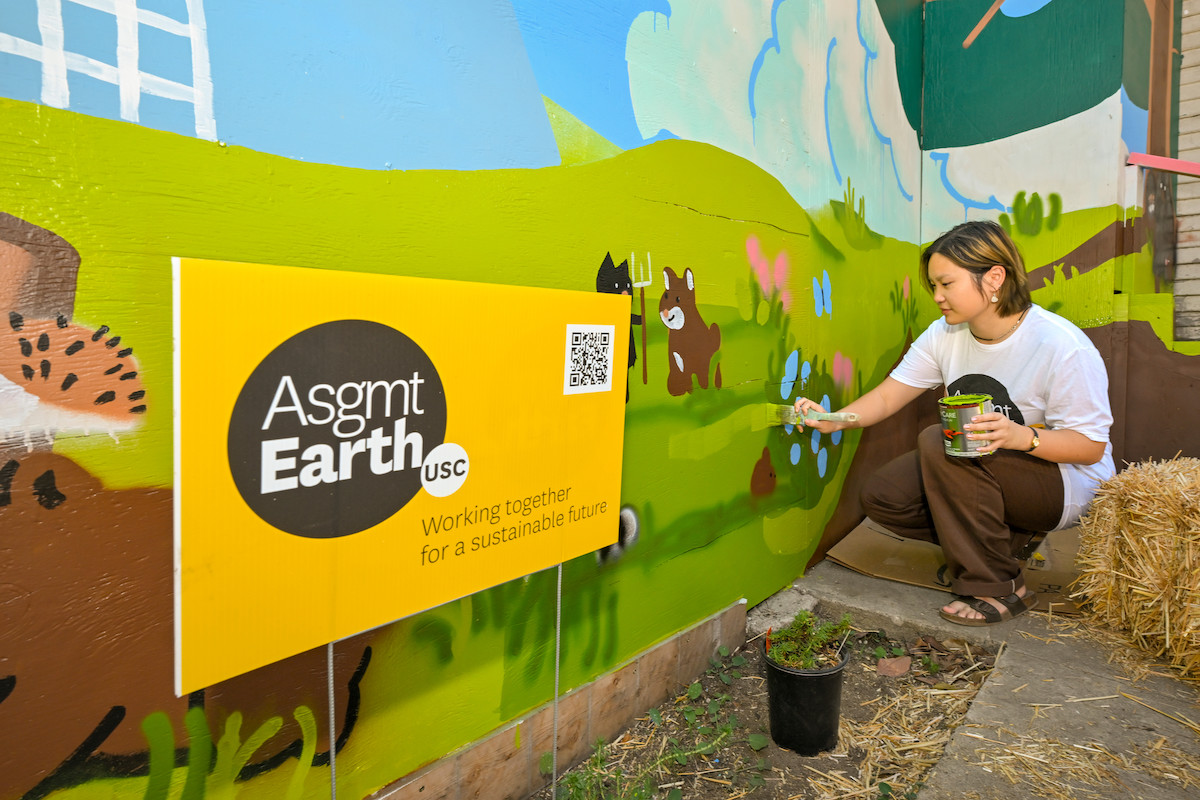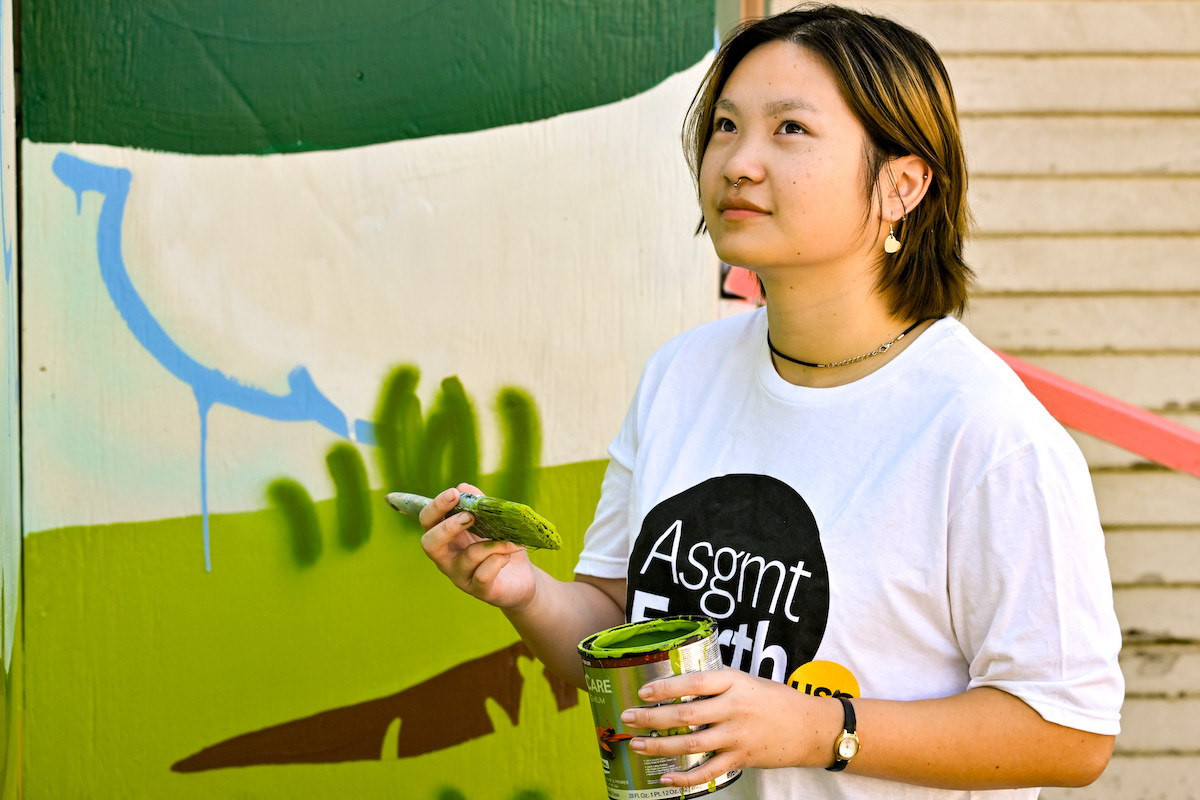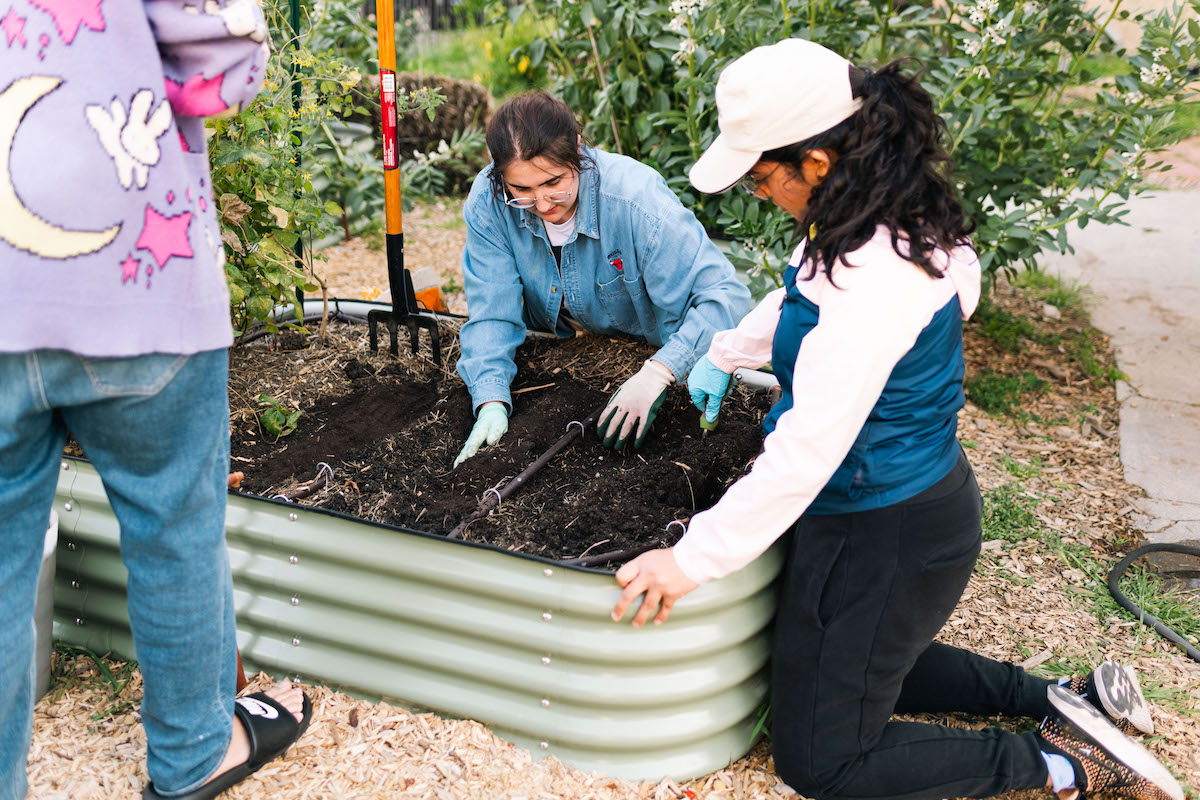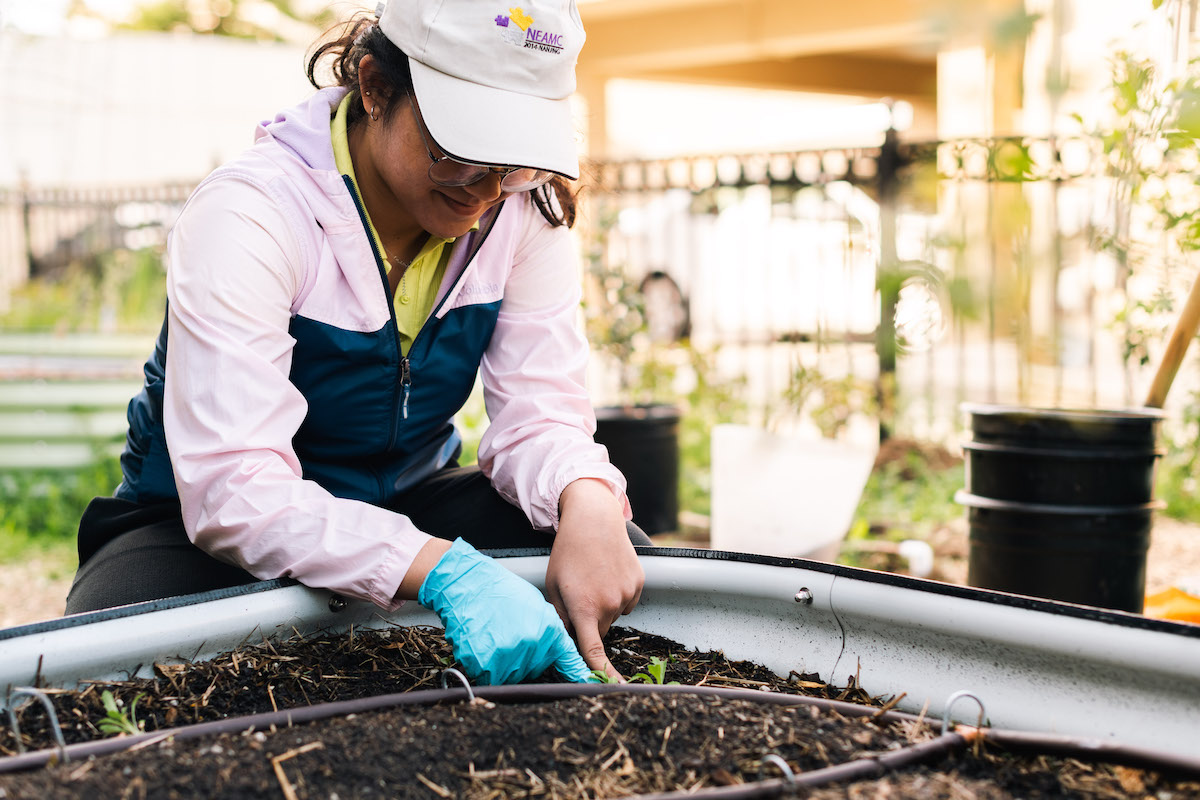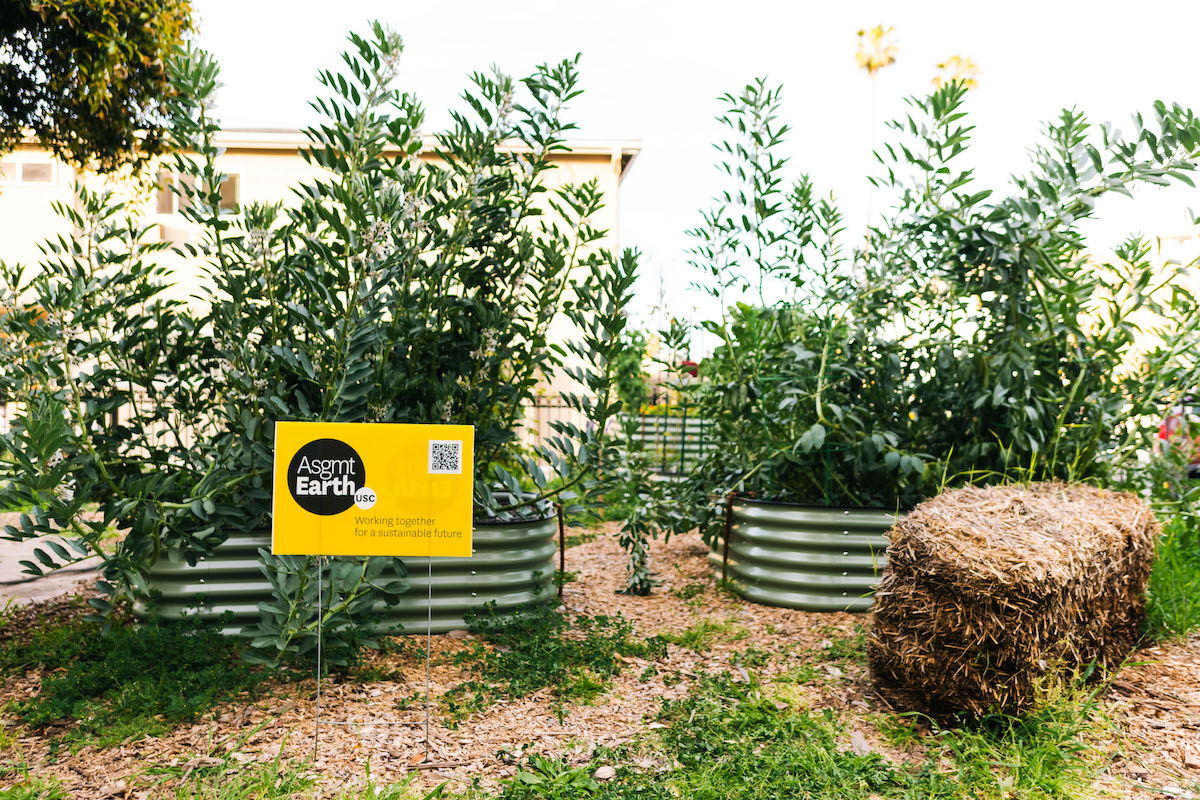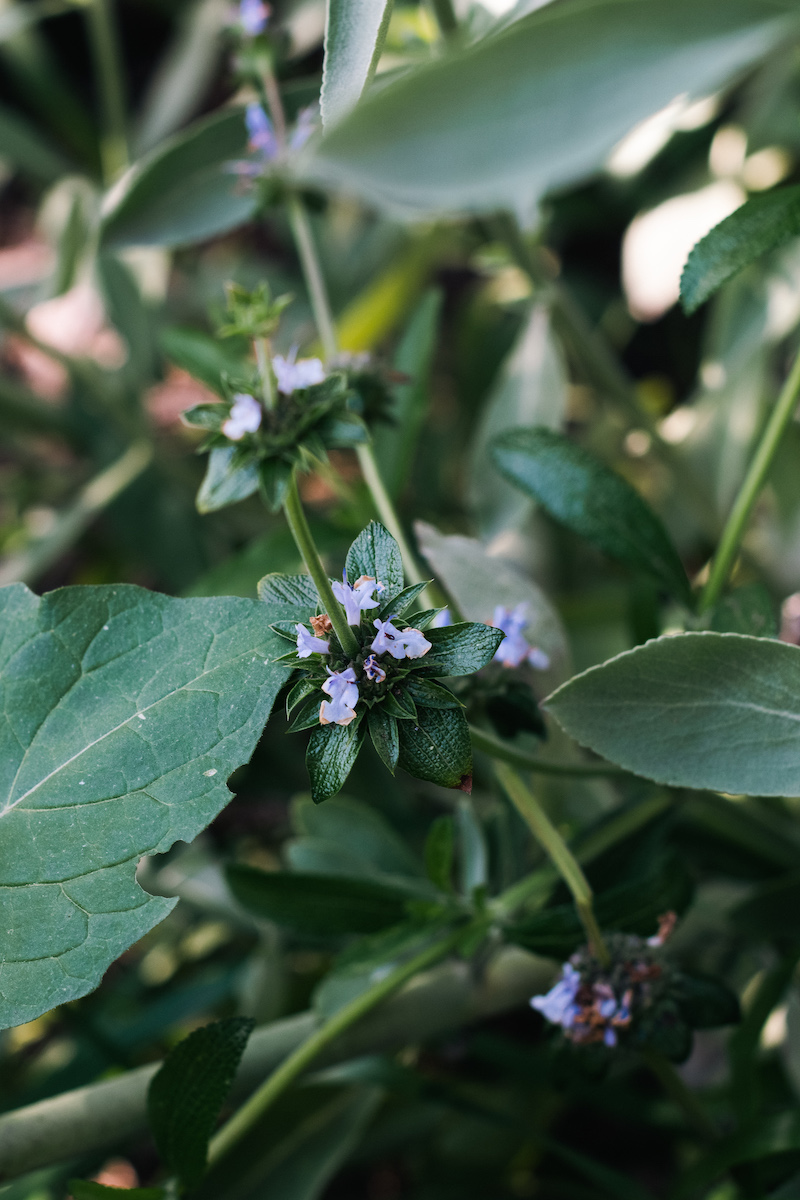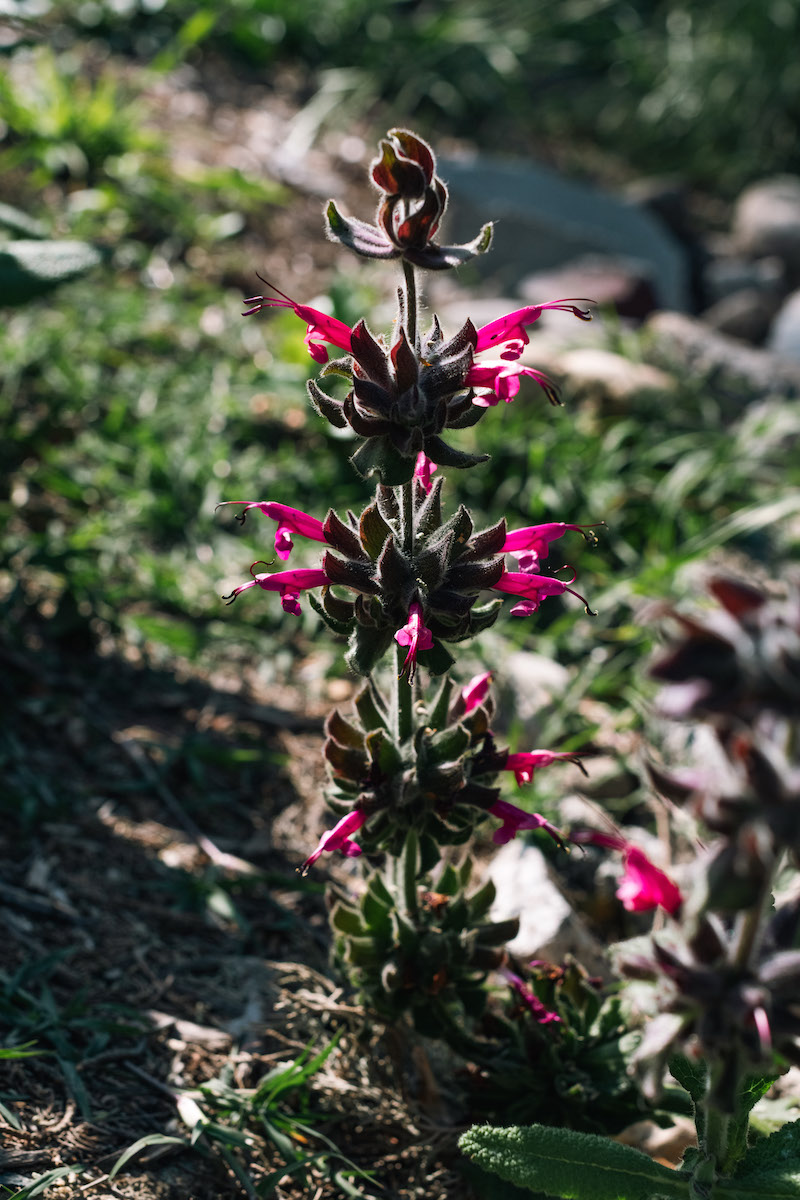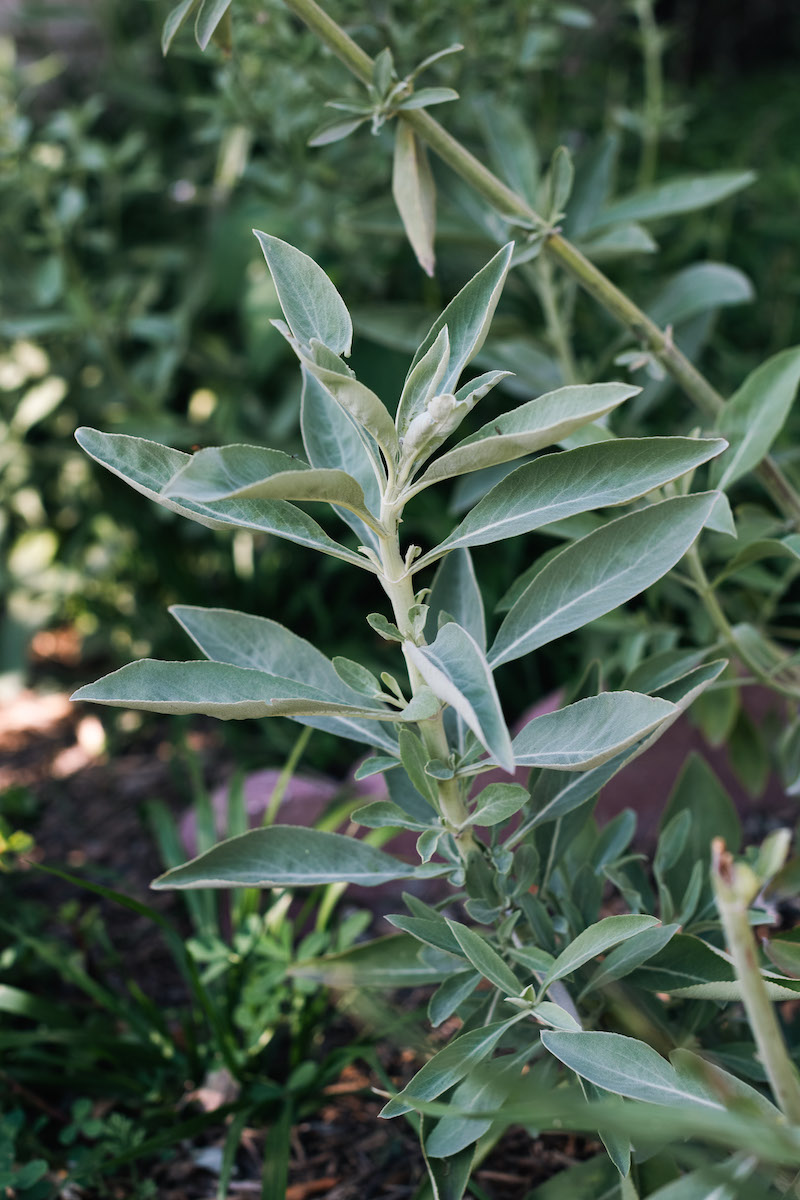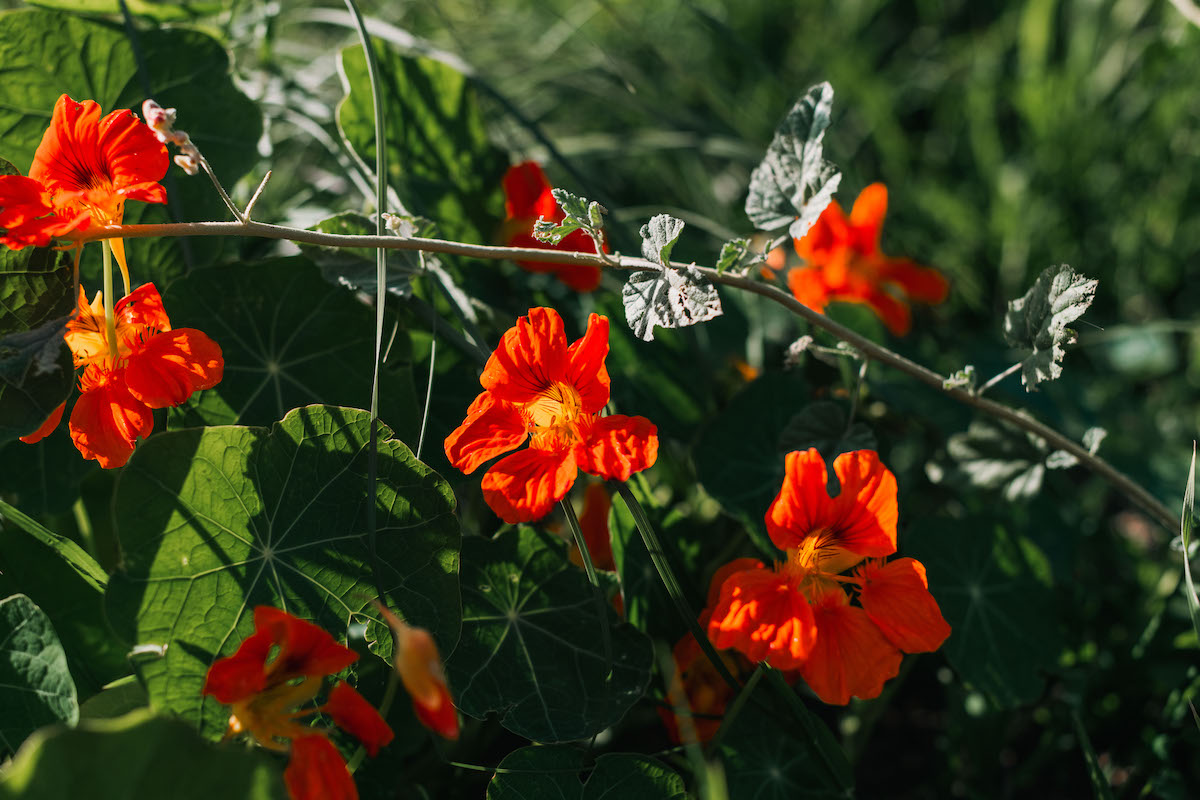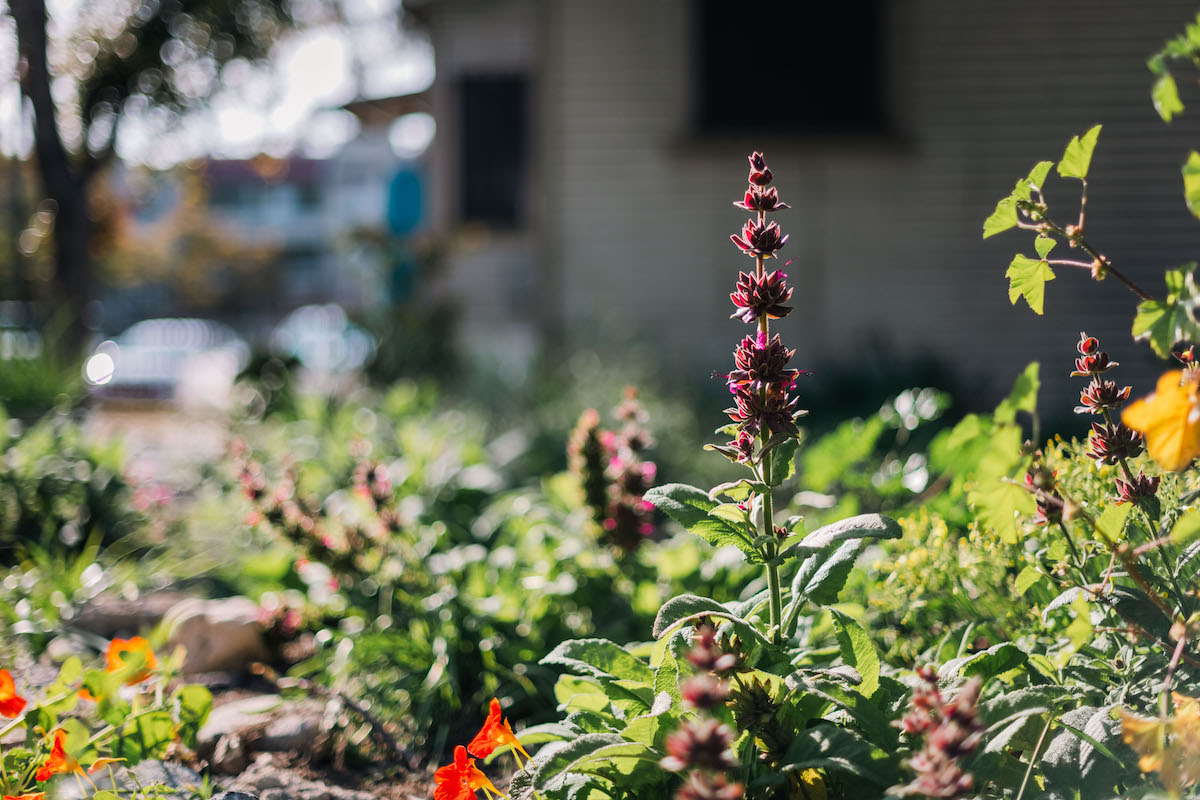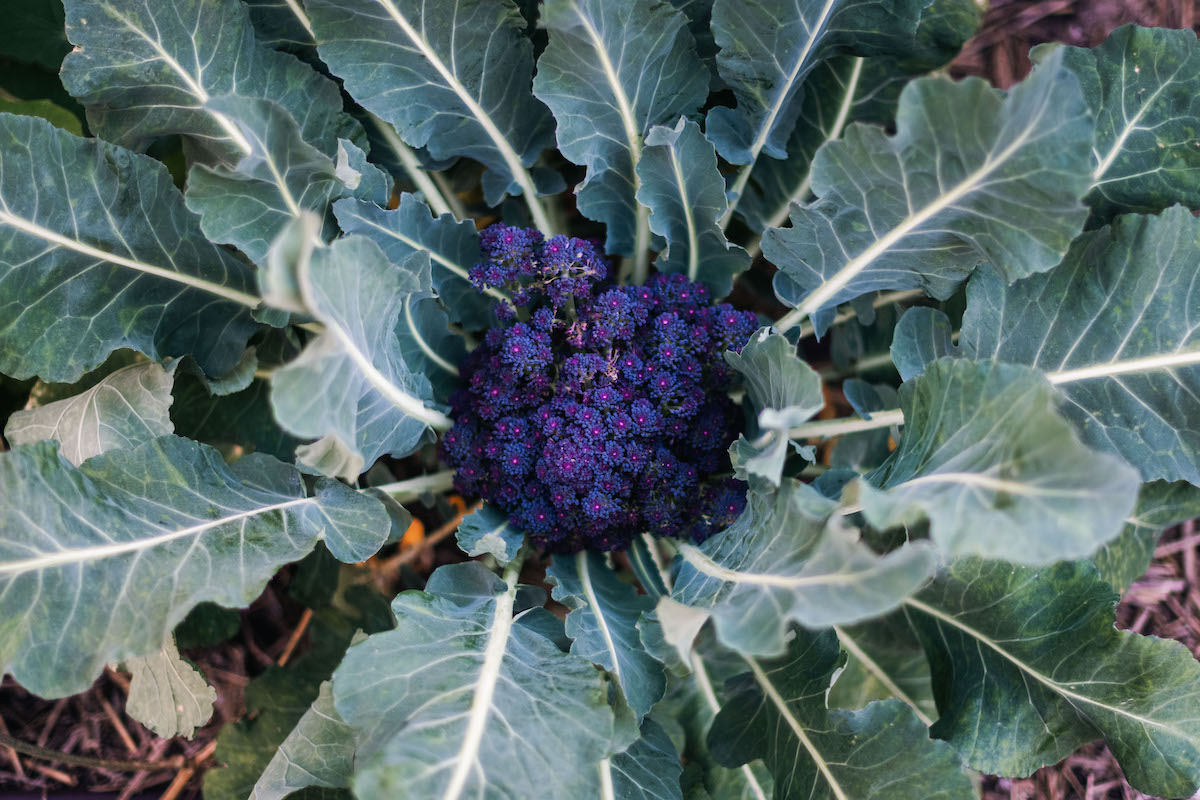USC Peace Garden
In the Garden
What is a Peace Garden?
A place to connect to nature in the heart of the city.
USC Peace Garden, led by Camille Dieterle, Associate Professor of Clinical Occupational Therapy, transformed a little-used lot near USC’s University Park Campus into a garden wellness space that is being used for education, research and programs serving the community. The purpose is to promote and demonstrate environmental sustainability, social and environmental justice, health promotion and wellness and community safety.
People / Partners / Affiliated Groups
Peace Garden is designed to attract partners and participants from around the University and the surrounding community ongoingly. Current partners include Chan Division of Occupational Science and Occupational Therapy, the USC Office of Sustainability, SOLA Community Peace Center, USC Office of Diversity, Equity and Inclusion, USC Arts & Climate Collective (ACC), USC Landscape Architecture, USC Hillel, Annenberg’s Civic Paths, and more to come.
Our staff consists of undergraduate interns from the Presidential Sustainability Interns Program, sponsored by the USC Office of Sustainability. We also have occupational therapy, social work and education graduate students who host programming at the garden.
Features of the USC Peace Garden
The overall design of the USC Peace Garden is by graduate student, Daniela Velazco, Master of Landscape Design + Urbanism Candidate, USC School of Architecture.
The Garden includes an urban mini-farm surrounded by California native plants and other drought-tolerant ornamental plants. The overall design is inspired by Southern California ecosystems and growing food.
Arts and Creativity at the Garden
The mural at the front of the Garden was designed and painted by Daniella Leon, undergraduate student at the USC Roski School of Art and Design.
The mural at the back of the Garden was designed and painted by Trenyce Tong, undergraduate student at the USC Roski School of Art and Design.
Planting approach / principles / design
- Environmental sustainability, including low water usage, composting, no use of harmful fertilizers or pesticides.
- Cultivating place, including emphasizing plants that are native to this region/ecosystem.
What are we growing?
California native plant species grown in the USC Peace Garden include:
- California buckwheat (varieties of Eriogonum)
- California bush sunflower (Encelia californica)
- California fuchsia (Epilobium canum)
- California goldenrod (Solidago californica)
- California sagebrush (Artemisia californica)
- Deergrass (Muhlenbergia rigens)
- Golden currant (Ribes aureum)
- Lemonade berry (Rhus integrifolia)
- Sages: black sage (Salvia mellifera), Cleveland sage (Salvia clevelandii), hummingbird sage (Salvia spathacea), white sage (Salvia apiana)
- Showy milkweed (Asclepias speciosa)
- Sugar bush (Rhus ovata)
- Toyon (Heteromeles arbutifolia)
The vegetables we are growing change every few weeks — some are added and some harvested on an ongoing basis. Fruit trees we are cultivating and/or rehabilitating include: pomegranate, peach, fig, banana, apple, orange, lemon, avocado, persimmon and loquat.
USC Peace Garden in the News
The USC Peace Garden opens gates to the public
With the help of USC Sustainability, the USC Peace Garden is hoping to immerse students in nature.
Terence Holton and Alia Noll, in USC Annenberg Media | September 5, 2023
Growing by design
When designing the USC Peace Garden, landscape architect student Daniela Velazco prioritized people and planting.
Mike McNulty, in USC Chan News | April 21, 2023
Peace garden brings community greenery
The community garden facilitated numerous sustainability initiatives that provide benefits to the wellbeing of both students and the environment.
Erin Walton, in Daily Trojan | September 29, 2022
Peace garden, narrative research study selected for post-pandemic initiative funding
Innovative community-focused projects are part of USC Chan’s $2.5M ReSPONs Initiative.
Mike McNulty, in USC Chan News | February 25, 2022
⋯





